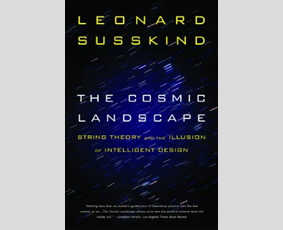There are, to begin with, two points that weigh strongly in The Cosmic Landscape’s favor: it’s a fascinating read, and a fairly easy read to boot.
Two rather neutral points would be that Leonard Susskind doesn’t rehearse the Anthropic Principle discussion’s every nook and cranny (for such an endeavor I’d rather recommend browsing arXiv.org instead, also and especially for essays published in Universe or Multiverse?) and he also doesn’t discuss String Theory at any length.
And there’s the rub. His assumptions, fascinating and with remarkable explanatory power as they are, critically depend on String Theory being indeed a part of nature—which is far from being established and has lately come under intense scrutiny, and criticism. One such critic is Lee Smolin (or rather he’s become an outspoken critic; he’s done considerable work in String Theory himself during his career), whose The Trouble With Physics I started to read yesterday, and I might have more to say about Susskind after I’ve finished Smolin. (Who, by the way, has his own fascinating but peculiar approach to the Anthropic Principle discussion.)
But what’s really engaging about The Cosmic Landscape, at least for me, is not who’s right or wrong but how the different approaches and arguments bear out their respective premises and how they correlate with each other—or not. Science and the scientific process never fail to thrill me.
If you have something valuable to add or some interesting point to discuss, I’ll be looking forward to meeting you at Mastodon!

